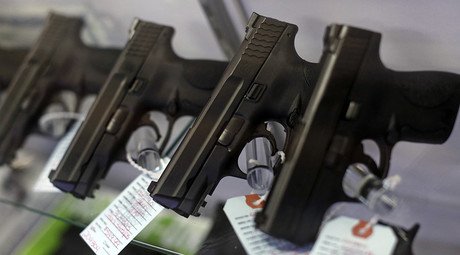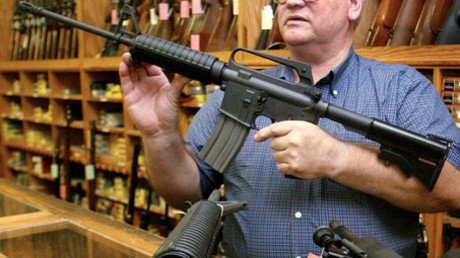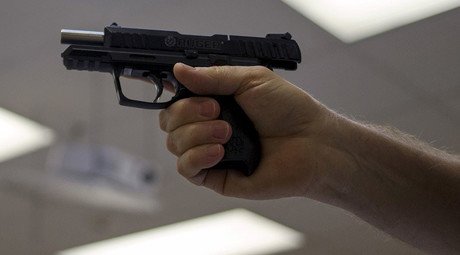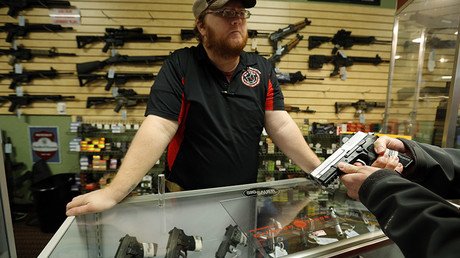Supreme Court rejects case over local ban of assault weapons
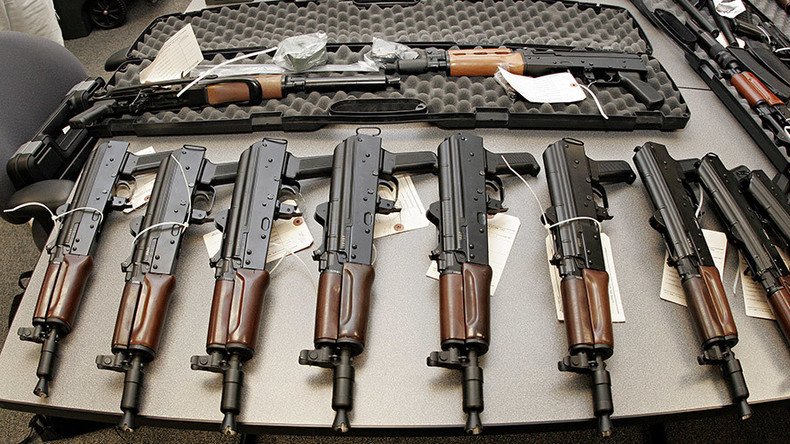
The US Supreme Court will not hear a challenge to a semiautomatic assault weapons ban in a Chicago, Illinois suburb. The decline comes amid a tense climate over gun violence and the relative ease with which Americans can acquire high-powered firearms.
On Monday, the court refused to hear the case Friedman v. Highland Park, at least for the time being. The Illinois State Rifle Association and pediatrician Arie Friedman levied the challenge against the town of Highland Park for a 2013 ordinance that banned the same type of guns and large-capacity magazines that Friedman had for self-defense.
The ordinance prohibits ownership of semi-automatic weapons that are compatible with high-capacity magazines ‒ defined as more than 10 rounds ‒ as well as one of five other features: a protruding grip that can be held by the non-trigger hand; a folding, telescoping or thumbhole stock; a barrel shroud; a muzzle brake or compensator; or the capacity to accept a detachable magazine at some location outside of the pistol grip. The ordinance also bans some specific weapons, including AR-15s and AK-47s.
"By its inaction, the court has left in place lower court rulings that allow restrictions on carrying a weapon... https://t.co/S4ekiCUwDa
— fgcnp.org (@fgcnp) December 7, 2015Highland Park has defended its ordinance, saying the prohibited weapons are capable of supporting large-volume magazines that are dangerous and uncommon.
Justices Antonin Scalia and Clarence Thomas dissented with the court's decision, saying the Supreme Court is ignoring Second Amendment precedents, including District of Columbia v. Heller, in which the Supreme Court struck down a federal law that banned self-defense handguns kept at one's home. That federal law was the Firearms Control Regulation Act of 1975, and the decision only affected the federal enclave of DC. In 2010, with its decision in the case McDonald v. City of Chicago, the court expanded extent of its Heller decision to state and local governments.
“The Court’s refusal to review a decision that flouts two of our Second Amendment precedents stands in marked contrast to the Court’s willingness to summarily reverse courts that disregard our other constitutional decisions,” Thomas wrote.
In a filing to the Supreme Court, Friedman and the Illinois State Rifle Association said the Highland Park ordinance's definition of "assault weapons" amounted to "an imaginary and pejorative category." They asked the Supreme Court to address “the lower courts’ massive resistance to Heller and their refusal to treat Second Amendment rights as deserving respect equal to other constitutional rights.”
Twenty-four states filed a supporting brief, stating that the Highland Park ordinance “bans many commonly used firearms and the standard capacity magazines for many popular firearms.”
In April, a federal appeals court upheld the assault-weapon ban in question, saying, "Highland Park’s ordinance leaves residents with many self‐defense options." Writing for the majority, Judge Frank H. wrote that a "ban on assault weapons and large‐capacity magazines might not prevent shootings in Highland Park (where they are already rare), but it may reduce the carnage if a mass shooting occurs."
Easterbrook added that “if a ban on semiautomatic guns and large-capacity magazines reduces the perceived risk from a mass shooting, and makes the public feel safer as a result, that’s a substantial benefit.”
In the minority's dissension, Judge Daniel A. Manion wrote that "by prohibiting a class of weapons commonly used throughout the country, Highland Park’s ordinance infringes upon the rights of its citizens to keep weapons in their homes for the purpose of defending themselves, their families and their property.”
In October, a federal appeals court in New York basically upheld bans on semi-automatic weapons in Connecticut and New York that are similar to Highland Park's ordinance.
READ MORE: Terrorism in America: 'Obama narrowly defined it as an Islamic extremist event'
The Supreme Court's rejection of the Highland Park case comes a day after President Barack Obama gave a national address from the Oval Office to denounce the attack last week in San Bernardino, California, that killed 14 and injured many more. He said the attackers had gone "down the dark path of radicalization, embracing a perverted interpretation of Islam that calls for war against America and the West.”
He called for tougher gun control measures, urging Congress to pass legislation that would prohibit individuals on the US no-fly list from purchasing a gun.
“What could possibly be the argument for allowing a terrorist suspect to buy a semiautomatic weapon? This is a matter of national security,” he said.
The stockpile of guns and ammunition amassed by the alleged San Bernardino attackers ‒ Syed Rizwan Farook, 28, and his wife Tashfeen Malik, 27, neither of whom were being actively monitored by law enforcement ‒ suggested that the US needs more stringent laws pertaining to the purchase of assault weapons, Obama said.
“I know there are some who reject any gun-safety measures, but the fact is that our intelligence and law-enforcement agencies, no matter how effective they are, cannot identify every would-be mass shooter, whether that individual was motivated by ISIL or some other hateful ideology. What we can do, and must do, is make it harder for them to kill,” Obama said, referring to Islamic State (IS, formerly ISIS/ISIL).
According to shootingtracker.com, there have been more than 350 mass shootings in the US ‒ at least four people injured or killed by gunfire including the perpetrator or perpetrators ‒ so far in 2015.
On December 3, one day after the San Bernardino massacre, the US Senate voted down proposals to strengthen federal gun laws. Republican opposition helped kill a Democratic effort to expand background checks for gun purchases made online, as well as a proposal to demand more scrutiny of gun sales to those on the US "terror watch lists" over due process concerns.
